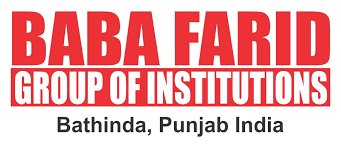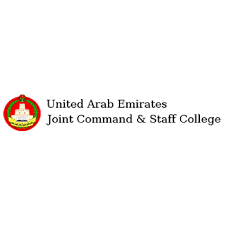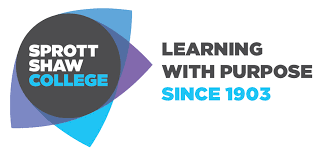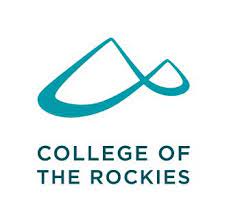F1 Visa Interview Questions and Answers for Students 2023
6 mins read 19083 Views
By Prabhadri Suman|Updated On - 2023-05-25 07:41:44
All the F1 visa interview questions and answers help you legitimate your status as a student. Check out all the F1 Visa Interview Questions and Answers for 2023.

Topics Covered:
- Get Ready for the f1 visa Interview
- F1 Visa Interview Documents
- How to dress up for an F1 Visa Interview?
- Do's and Don'ts in an f1 US Visa Interview Process
- Tips for Answering Commonly Asked F1 Visa Interview Questions
- What are the common types of F1 Visa Interview Questions?
- How to Get an F-1 Visa After Rejection?
- Conclusion
Excitement often gets diminished by the thought of a Visa Interview when one is accepted to universities in the USA . People from all over the country have recounted tales of being put through rigorous questioning by the interviewer. However, it is essential to remember that their goal is not to reject applications. Their only purpose is to check if your reasons for going to America are valid. Unless you have plans to stay illegally, they are not trying to stop you from achieving your US ambitions.
The Student Visa Interview for the US is an important part of the application process, but it usually doesn't last long. On average, it will take 3 to 4 minutes (and sometimes even shorter). Contrary to what many people think, the Visa Officer usually won't go through all your documents. Unless asked, you should not offer them. It is recommended that you carry the necessary documents with you just in case.
This guide attempts to correct a few wrong ideas about the Visa Interview, list down the Basic Do's and Don'ts, and give some F1 visa interview questions and answers. It furnishes facts about the USA study visa, which will be useful when applying for an F1 study visa. It must be noted, though, that, like any interview, every situation is different. However, the main element that must remain constant is confidence and a strong purpose.
Get Ready for the f1 visa Interview
Before you attend your interview for a US Student Visa, here is a list of items that you should be familiar with:
No matter who is interviewing or being interviewed, a formal exchange between two or more individuals is always an interview. Therefore, the same amount of preparation is necessary for this encounter. To ensure a successful event, here are a few steps to remember before the questioning begins. Doing your research is the key to success.
- Make sure that all relevant documents are organized in an orderly fashion for the interview. (Refer to the list of documents to bring.)
- Refresh your memory on the admission essay or statement of purpose to the universities and courses you applied to.
- Look over the course you're enrolled in, including its credit system, tenure, faculty, and highlights. Analyze why you chose that particular university.
- Do some research on the state you'll be visiting and the university's background, along with its nearby locations.
- Review your financial documents to understand how you'll be paying for education in the United States.
F1 Visa Interview Documents
Being prepared with the necessary documents is essential when applying for an F-1 Visa interview. These documents should include personal information, academic and professional background, as well as financial documents. A comprehensive list of documents is available for review. It is best to have all the necessary documents ready in advance.
Personal Documents for F1 Visa
- Passport
- DS 160 Confirmation Slip
- SEVIS Fee Receipt
- MRV Fee Receipt
- Visa Interview Appointment Letter
- Passport Size Photograph
Educational Documents for F1 Visa
- Academic Transcripts
- PTE / TOEFL / IELTS scorecard
- Bachelor’s Degree/ Provisional Degree Certificate
- GRE / SAT / GMAT scorecard
Professional Documents for F1 Visa(if applicable)
- Relieving Letter
- Joining Letter
- Salary Slips of the last six months
Financial Documents for F1 Visa
- Loan Approval Letter
- Bank Account Statement
- Income Tax Returns for the last 3 years
- Fixed Deposit Certificates
- Property Documents (residential, commercial, ancestral, and/or farmland)
How to dress up for an F1 Visa Interview?
When preparing for an F1 visa interview, it is important to consider what to wear. The right clothing can make a big difference in creating a good impression on the interviewer.
The moment you meet with the interviewer is when the interview begins, and often the initial impression is determined by your attire. Therefore, prior to the designated day, consider your outfit with care and remember the following elements.
- Preserve an air of formality while avoiding excess: For men, the formal dress code generally consists of a shirt and trousers, while for women, it could be a similar look or an Indian formal outfit, like a sari or salwar kameez. It's important to be mindful of the weather when selecting your outfit - for instance, in the heat of June, you don't need to wear a full suit, but instead opt for a simple shirt and trousers.
- Opt for a palette of either light or solid tones: During summer, opt for pastels instead of fluorescents for an interview. Solid hues are more suitable for winter interviews. Refrain from wearing garments with prints, as they could be a distraction.
- Keeping it Simple: Rather than overloading yourself with accessories, it is better to keep it simple. Stick to the basics, and you will be able to look put together without being weighed down.
- It is wise to limit the number of accessories you wear
- Long necklaces, danglers, and noisy bangles are not suitable for women
- If you need to wear jewelry for religious reasons, try to restrict the amount to the least possible - anklets without sound are recommended
- Men should avoid wearing large bracelets or jingling chains
- Ensure your attire is freshly laundered and crisply pressed: Sitting around before your interview can take some time, so it's wise to choose clothes that don't crumple quickly. Of course, it's important to look neat - disheveled attire is not the right way to make a good impression.
- Be sure you don't give off any scent - either good or bad!: To ensure you don't make a bad impression with body odor, wearing deodorant or light talc is important. However, you should also avoid wearing strong colognes or perfumes, as the Visa Officer might be allergic to them. You wouldn't want them sneezing through your interview or, worse, feeling uncomfortable due to the smell.
- Wear glasses if the same is in your passport:
- If your passport has a photo of you wearing glasses, you should put them on when traveling.
- However, if you usually wear contacts, you can still do so.
Do's and Don'ts in an f1 US Visa Interview Process
For any interview, there are certain dos and don'ts that you need to keep in mind. Many of them are interconnected:
Do's in an F1 US Visa Interview Process
- Smiling can boost your confidence, so there's no need to always look serious. Pursuing your studies in the USA was a dream of yours, and now you're one step closer to achieving it. So, let that be a reason to smile!
- To pursue education in the USA, it is essential to possess English communication skills. Speaking English fluently is a must-have requirement.
- It is generally believed that avoiding eye contact can be interpreted as a lack of honesty. To ensure a positive impression during an interview, it's recommended to practice maintaining eye contact while answering questions. This can be practiced at home to help build confidence in maintaining eye contact during the interview.
- It is always essential to double-check that the documents you are carrying are complete and organized appropriately. This way, you can have quick access to the necessary paperwork if you are required to present it.
Don'ts in an F1 US Visa Interview Process
- It is common for students from all over the world to travel to the USA for studying purposes, and there is no need to be worried about it. However, it is natural to feel a little nervous, but excessive sweating or hyperventilating should be avoided. If you tend to get too anxious, practicing some breathing exercises beforehand can help keep your nerves in check during the interview.
- The visa officer can comprehend Indian accents. Therefore, there is no need to put on an American accent. It is best to speak clearly and with a natural tone, avoiding any artificial accents as much as possible.
- There is a distinction between looking someone in the eye and staring at them without blinking. It is important to avoid continuous staring during an interview as it can cause the interviewer to feel uncomfortable. Remember to blink while speaking to prevent this from happening.
- It is unlikely that the visa officer will require any documentation from you. It is recommended that you do not offer any documents unless they explicitly ask to see them.
Tips for Answering Commonly Asked F1 Visa Interview Questions
It is essential to note that no two interviews will be the same, but the purpose of the meeting for an F1 Visa is always the same--to get answers. Despite the varying questions, the goal of the interview remains the same.
- The first step is to ascertain the purpose of your stay - to stay in the US or to study and return home.
- Moreover, it is essential to evaluate if you can finance your stay in America.
What are the common types of F1 Visa Interview Questions?
The people who are in charge of the visa process usually ask the same inquiries of every F1 visa applicant. This is beneficial to you as it gives you a chance to get ready ahead of time. Generally, the interviewer inquiries about your:
- Study plans
- University choice
- Academic capability
- Financial status
- Post-graduation plans
Study Plan Questions and Answers
Q. What is the reason you aren't taking this course in your homeland?
Hint: You should be aware of the benefits that the course would provide if taken in the United States rather than in India. If the course is not available in India, inform the Visa Officer that it is not available in that country. If it is offered in India, explain the dissimilarities between the quality of education, the course structure, and the research being conducted in the field in India and the US. You should be able to convince the Visa Officer that taking the course in the US will enhance your profile. Utilizing technical terms could be helpful if other methods are not successful.
Q. Why do you want to study in the US?
Suggestion: Let your interviewer know what made you decide to pursue your studies in the United States. You can emphasize that the US is the number one choice for international students seeking higher education and has a few of the greatest universities globally. Moreover, American universities provide assistance for international students, an adaptable academic system, cultural variety, top-rated courses, and more. You may also point out that many international students like yourself come to the US to be part of a welcoming environment and to enhance their English language capabilities.
Q. What are you planning to study?
It is recommended to provide the interviewer with an understanding of the area of study you are planning to pursue. For example, if you are pursuing a degree in computer science, you should talk about how you wish to make a difference in sectors such as healthcare and education through the use of technology. In the case of business, it is important to explain how degree programs in the field are flexible and offer various lucrative career prospects. By responding to questions related to the US F-1 visa with confidence, you can demonstrate that you are a genuine international student who is interested in studying in the United States.
Q. Have you ever visited the United States?
Tip: If you have already gone to the US, it is important to inform the visa officer why you had gone there, such as for a holiday, to participate in a training course, or for healthcare. In contrast, if you have never been to the US, you should let them know that you have not had the chance to visit or take classes there yet.
Interested in studying abroad? Our Experts will evaluate your profile for FREE
University Questions and Answers
Q. What led you to select this particular University?
Suggestion: It is advisable to go through the website and guidebook of your university meticulously. Jot down the notable features such as Worldwide ranking, the research facility, the staff profile, the Alumni profile, etc. The visa officer wants to understand the reason behind selecting the specific University. A reason such as - simply because I got admission to that University is not acceptable. Choosing the university should not come across as if it did not matter which university you got into. You should be enthusiastic about going to that specific university.
Q. What universities did you submit applications to, and which ones accepted or declined your applications?
Suggestion: The Visa Officer needs to be certain that you are earnestly devoted to your education. Even if you applied to four universities and were accepted to only one while the other three rejected you, the only approach to take is, to be honest. Explain the universities you applied to and have confidence in the way you selected the one you got accepted to. In a concise statement, express your delight in being accepted. As an example,
I had to adhere to the prerequisites of my course when settling on a few universities to apply to, with this being one of my top two selections. Fortunately, I received an admission offer from this particular university.
Q. Where did you finish your undergraduate degree?
Advice: Include the name of the academic program and the educational institution. If the college has an esteemed reputation or a certain trait that should be highlighted, do not hesitate to mention that as well. Make sure to keep the statement concise and succinct.
Q. What are the Benefits of Attending an American University?
Suggestion: The Visa officer is looking to comprehend your reasons for wanting to travel to the United States. Since you are applying for a student Visa, emphasize the high-quality education the US provides, which would bring the best of the world to your home country. Point out the advanced infrastructure, research, and teaching techniques available. When talking about the advantages of a certain university or course, stay focused on the educational aspects rather than the country itself.
Academic History Questions and Answers
Q. What scores have you obtained on the test you took?
It is recommended to include results for any standardized exams you have taken, such as the TOEFL and IELTS for English language assessments, as well as the GRE, GMAT, ACT , and SAT.
Q. Would it be possible for you to provide me with your high school academic record?
Tip: It is essential to have all crucial documents prepared and accessible for the visa interview, such as transcripts from high school, passport, DS-160 confirmation page, payment receipt for the F-1 visa application, a copy of the visa photo (ensure it follows all the requirements) and I-20 from the educational institution you were admitted in. This way, you will be able to provide the interviewer with the requested document without any trouble.
Q. How well you are proficient in English?
Tip: It is beneficial to demonstrate your proficiency in the English language through TOEFL and IELTS scores. Even if you have already been accepted to the university of your choice, mentioning your scores to the interviewer can demonstrate your dedication to strengthening your English-speaking capabilities. You can inform the visa officer that you are eager to continue developing your English-speaking skills by being part of an international environment in the US.
Financial Questions and Answers
Q. What kind of job does your father/mother (Sponsor) have?
Advice: It is important to be aware of the financial situation of the sponsors to satisfy the Visa officer. Make sure to review their Income Tax Returns (ITR) and other relevant documents. Understand the source of income for the people who are funding your trip and be precise about the type of work and their job responsibility. Do not just vaguely state that they are in business or service.
As an illustration:
He holds the position of Senior Branch Manager at the Chandigarh Branch of the State Bank of India.
Alternatively, one could consider the concept that without a solid foundation, it is impossible to build something of lasting value. This could be seen as a metaphor for any endeavor, not just construction. Establishing a strong base is essential in order to create something with lasting significance.
Delhi University has her as a professor who specializes in Mercantile Law.
Q. What is the annual income of your father/mother/sponsor?
Advice: The Visa Officer will want to confirm that your sponsor's annual income is adequate to cover the costs of studying overseas. They recognize that money can be held in banks, but that income from the year is the primary proof they consider when ascertaining the sponsor's ability to support your educational expenses. It is essential to indicate the annual income from IT Returns, as per the University’s I-20.
Q. Who is providing financial assistance to you?
Recommendation: If you are the recipient of a scholarship for studying in the United States , make sure to mention that. If not, then you should cite the names of your sponsors, in addition to the fact that your parents are financially supporting you for higher education, as seen in the appropriate documentation.
Q. What is the size of your sibling group?
Advice: These types of inquiries are typically posed to assess if your family has additional members who may require your parents to provide financial backing later on. The purpose of these questions is to evaluate the family's income and expenditure balance.
Q. Has a Scholarship been obtained by you? What was the basis for the University awarding a Scholarship to you?
Tip: It is important to be aware of the number of scholarship opportunities and to know the criteria that the university is using to award them. Additionally, your Visa Officer may ask you to demonstrate that you are familiar with the scholarships and financial aid available. If you have submitted a Statement of Purpose for a scholarship, make sure you bring a copy of it with you.
Q. Do you have any borrowed money? What is your strategy for paying it back?
Suggestion: Specify the amount of your loan as well as the source that you have obtained it from. Furthermore, ensure that you plan to pay it off with your salary after you finish your studies in India instead of suggesting that you would use part-time jobs in the US for repayment.
Post-Graduation Questions and Answers
Q. Are you planning to pursue a particular job or career after you graduate?
Tip: When going through the visa process as an international student on an F-1 visa, it is essential to emphasize to the visa officer that you have no plans to stay in the United States after your academic program concludes. Point out that you intend to go back to your home country and pursue a job once you graduate. Make sure to specify what you plan to do professionally upon your return.
Q. After you finish your MS/MBA/UG, what are your plans? How can you demonstrate that you intend to return?
Advice: If you plan on finding employment after finishing your course, make sure to mention it. Express your desire to work with specific companies located in India. If you have been employed prior to studying, indicate that you have the opportunity to reunite with your old workplace after you have completed your degree. If you are more inclined to continue your studies and do research, also mention that. However, be sure to allude to the fact that your family is still in India and that you intend to return to them when your academic journey is over.
Q. Are you planning to return home during the break period?
Suggestion: Demonstrate to the Visa officer that you plan to go back to India to visit your family and friends. Refrain from stating that your motive is to work in the US, as it could make them believe that you are not financially capable and are planning to live in the US after completing your education.
Q. Are there any of your family members residing in the United States?
Advice: It is essential to be honest with the visa officer, as they will have the full details about your close family members. If your more distant relatives are living in the US, then you do not need to mention them. It is only necessary to give information about your brother, sister, father, or mother. An illegal stay of your relatives in the US will not be viewed positively.
How to Get an F-1 Visa After Rejection?
If you receive a visa rejection notice after putting in a lot of effort into collecting information and preparing for your visa interview, it can be frustrating. However, the positive side is that you are now familiar with the process, and it should be more manageable next time around. It is possible to reapply three business days after the rejection notice, but it may not be advisable to do so immediately. Sometimes, the reason for the visa denial cannot be resolved within three days.
Steps to Follow After the F1 Visa Rejection
For those who are unsure of what to do after their F1 visa is rejected, we have compiled a list of steps to follow along with the reapplication process.
- Understand the visa denial reasons: There are multiple factors that lead to the rejection of an F1 visa application. The candidate receives a letter highlighting the reasons for the visa denial. To obtain approval in the future, they must identify and rectify the issue and ensure it is not repeated.
- Find a solution: If the issue is related to the basic eligibility requirements, like insufficient savings or uncertainty about the student's intention to go back home after their stay, they could resolve it on their own. However, if the problem involves legal matters, seeking assistance from a lawyer or authorized personnel is essential.
-
Reapplying F-1 Student Visa:
If your F1 student visa has been denied, you will need to take certain steps to reapply. Firstly, you will need to address the reason for the denial and then submit a new visa application with the required fee. It is important to keep an eye on the website of the US Consulate and Embassy for any updates on the reapplication procedure. Make sure to prepare thoroughly for the visa interview and arrive on time. It is advisable to reapply only when you have new information that could convince the officials to grant you the F1 student visa. If the reason for the denial is related to your admission form, your Designated School Officials can help you. However, if it is for some other reason, you must seek assistance from immigration officials.
Conclusion
Your visa officer may inquire about your academic achievements, your sibling's educational background and occupations, and your current employment. It is essential to be certain of your goal, which is to pursue education in the USA, and also be sure that you can afford it.
Take a deep breath and put on a big grin... Good luck!
The Edmissions team is here to provide you with help throughout the college application process. Before you submit your application to your desired college or university, it is recommended that you get in touch with study abroad consultants by registering on the website edmissions.com .
To learn more about application processing, contact our Edmissions specialists at
[email protected]
For a quick overview related to study abroad,
click here
Latest Blog Posts
Trending Posts
Popular Colleges to Study Abroad
Blog FAQ's
Top Study Abroad Exams
Popular Universities to Study Abroad
- University of Waterloo
Waterloo
- University Canada West
Vancouver
- University of Windsor
Windsor
- Cape Breton University
Sydney
- Dalhusie University
Halifax
- Carleton University
Ottawa
- University of Ottawa
Ottawa
- University of Guelph
Guelph
- Explore more colleges in Canada
- University of New Haven
West Haven
- Kent State University
Kent
- Wright State University
Dayon
- San Jose State University
West Haven
- Clark University
Worcester
- Rowan University
Glassboro
- Golden Gate University
San Francisco
- Arkansas
San Francisco
- Explore more colleges in USA
- Coventry University
Coventry
- University of Birminghame
Birminghame
- De Montfort University
Leicester
- Cardiff University
Cardiff
- BPP University
London
- University of West London
London
- University of Nottingham
Nottingham
- University of Warwick
Coventry
- Explore more colleges in UK
- Auckland Institute Of Studies
Auckland
- Massey University - Auckland Campus
Albany
- Eastern Institute of Technology - Auckland Campus
Auckland
- NorthTec - Auckland Campus
Auckland
- Massey University - Manawatu Campus
Palmerston North
- University of West London
London
- Wellington Institute of Technology (WelTec) - Petone Campus
Lower Hutt
- Otago Polytechnic - Dunedin Campus
Dunedin
- Explore more colleges in New Zealand
- Chandigarh University
Mohali
- Parul University
Vadodara
- Sharda University
Greater Noida
- Jain University
Bangalore
- Bennett University
Greater Noida
- Lovely Professional University
Phagwara
- Chitkara University
Rajpura
- Brainware University
Kolkata
- Explore more colleges in India
- Abu Dhabi University
Abu Dhabi
- Gulf Medical University
Ajman
- New York University
Abu Dhabi
- Emirates Aviation University
Dubai
- Higher Colleges of Technology
Dubai
- British University in Dubai
Dubai
- Al Ghurair University
Dubai
- American University in the Emirates
Dubai
- Rochester Institute Of Technology Dubai
Dubai
- Emirates Academy of Hospitality Management
Dubai
- American University of Ras Al Khaimah
Ras Al Khaimah
- Explore more colleges in UAE
- Ras Al Khaimah Medical and Health Sciences University
Ras Al Khaimah
Search, Shortlist, Apply and get accepted! It’s that Simple to pursue your dream to Study abroad with Edmissions. Our team of experts provide you the right guidance that helps you to take admission in your dream college in countries like Canada, the USA, the UK
© 2021-2024 Edmissions - All rights reserved.
TALK TO OUR EXPERTS











